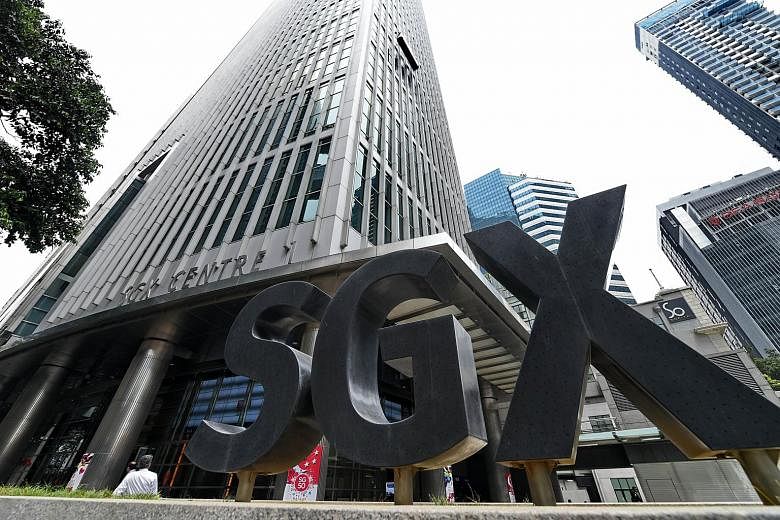1. Is the roller-coaster ride over?
Maybe not. Investors will be approaching markets cautiously on Monday (Aug 31) after last week's dizzying ride with the big question still left open: Is the worst of the sell-off over?
Global stock markets were stung by severe swings in recent weeks, stoked by concerns that a slowdown in China's economy may be harsher than anticipated just as the United States was about to raise interest rates.
But after confirming a move into correction territory, US stocks rebounded last week to score their best two-day percentage gain in over six years after Federal Reserve Bank of New York President William Dudley said last Wednesday that the likelihood of a Fed rate rise in September had dimmed.
But a September rate hike has not been ruled out. On Saturday, Fed vice-president Stanley Fischer told CNBC during the Fed's annual conference in Jackson Hole, Wyoming, that the committee was "heading in the direction" of higher rates. Traders in futures markets that bet on rate increases boosted September's odds after his words.
China will also remain in focus with fears over the health of the world's second-largest economy likely to keep world markets on edge.
2. Fed move still "data-dependent"
Luckily, there is a raft of US economic data due this week that should shine a light on the likelihood of a near-term US interest rate hike and help tamp down the market's recent wild swings.
Before the biggie - Friday's US jobs report - there are car sales, construction spending, the Fed's "beige book", trade figures and ISM manufacturing data to sieve through. After a stronger-than-expected revision to second quarter gross domestic product last Thursday (Aug 27) and solid durable goods figures on Friday (Aug 28), another run of strong data this week may show the US economy is strong enough to withstand the first rate hike in nearly a decade from the Federal Reserve, despite worries about a hard landing for China's economy.
But traders also are also mindful of the fact that the Chinese slowdown could hit US companies and their shares disproportionately in the second half of the year, with luxury goods companies and industrials among the groups paying a price. Thomson Reuters data shows third-quarter earnings expectations have dropped 6.4 per cent for the US industrial sector and 8.8 per cent for the US materials sector since July 1.
3. China's Victory Day parade
Traders said China's government resumed its intervention in the stock market last Thursday and has been cutting holdings of US Treasuries this month to support the yuan, ahead of a high-profile parade this week. The authorities want to stabilise the markets before the Sept 3 military parade celebrating the 70th anniversary of the World War II victory over Japan. It is the first time China is commemorating the allied victory with such an event.
The parade has been planned for months and will provide President Xi Jinping with his first opportunity to publicly present himself to the world as China's commander-in-chief.
So market intervention to prop up stocks may continue this week.
Investors will also focus on purchasing manager surveys due on Tuesday which are expected to show that manufacturing contracted in August.
4. ECB, other central banks to hold steady
The European Central Bank is expected to keep a steady hand when it meets on Thursday, after data on Monday is likely to show there is still very little inflation in the currency bloc almost half a year since the ECB started pumping €60 billion (S$95 billion) a month of fresh cash into the economy. There is a small but growing chance the ECB will extend its stimulus programme beyond the planned completion in September 2016, and if inflation data misses expectations that likelihood will increase.
The Reserve Bank of Australia meets on Tuesday. No change in policy is expected, despite the resource-rich country's reliance on Chinese demand. Sweden's Riksbank is also unlikely to move on Thursday.
5. Singapore PMI due this week
In the midst of election fever, Singapore's manufacturing PMI for August will come out on Thursday. The Purchasing Managers' Index is a key indicator of the sector's health and outlook. Factory activity shrank in July after two months of expansion, with a drop in new orders and production as well as a further decline in new export orders. Economists say the outlook remains cloudy due to a sluggish Chinese economy.


